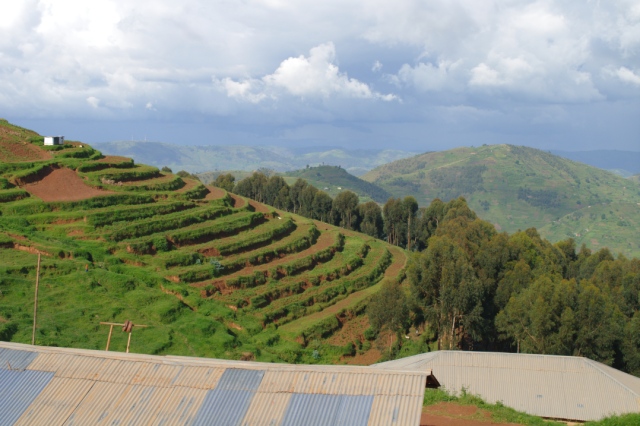
The refugee camp is perched at a peak that collects a rainy hug as toll from every passing cloud. The weather can swing from glorious to gloomy and back in an hour.
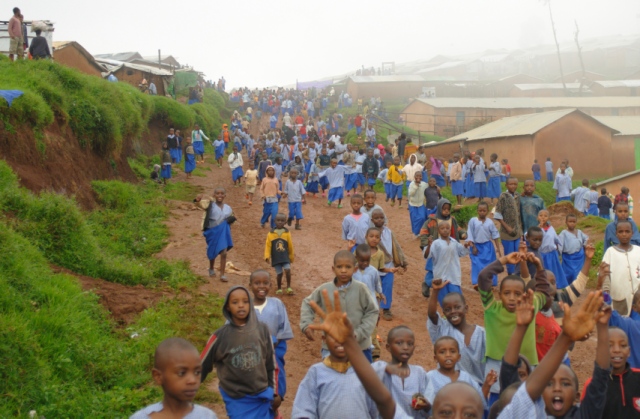
May 25 is a holiday of sorts in Congolese refugee camps in Rwanda, so thousands (yes, thousands) of children swarmed to my camera.
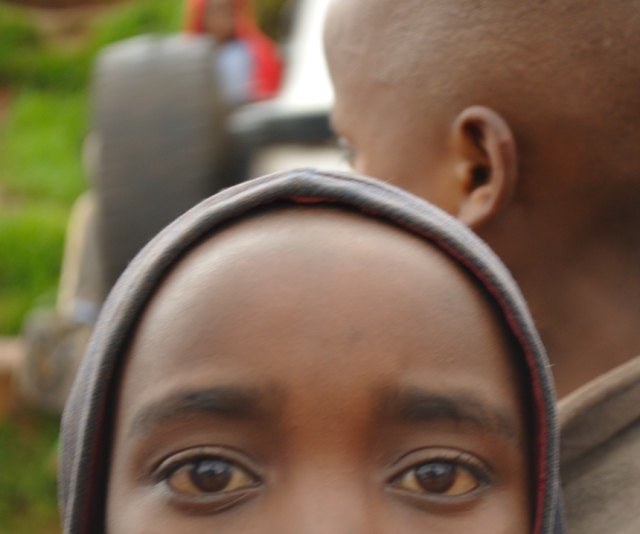
I shot this one blind, camera at my hip. The kid wasn't posing: he was trying to see the back of the lens.
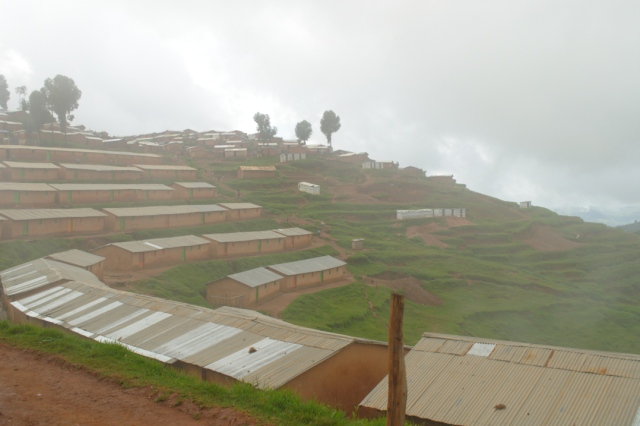
On this holiday, the camp emptied to attend its annual ceremony.
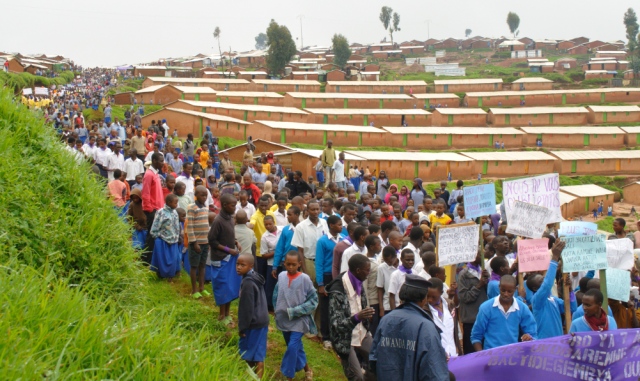
It began, as many Rwandan ceremonies do, with a march so that television stations could gather footage. The signs bore various slogans such as "never forget;" the purple banner at the front signifies genocide remembrance in Rwanda.
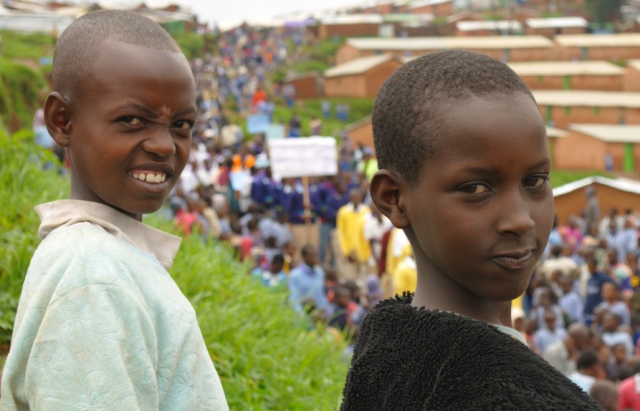
To many children, the violence is forgotten or never experienced; younger residents have never seen their motherland.
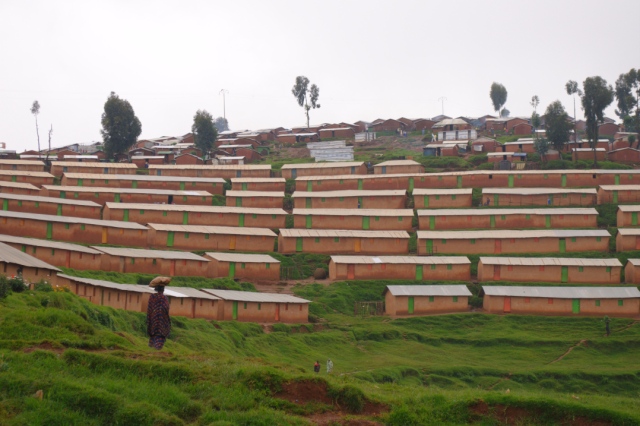
Refugees have spent most or all of their lives in very cramped quarters. Many fear the dense population and lack of jobs is causing an AIDS catastrophe behind the camp's orderly veneer. On the bright side, the hospital is very nearby and medication is free for the few residents who have the nerve to face stigma, get tested, and ask for treatment. According to Jean des Dieux, responsible for treating the camp's AIDS patients, about 250 residents are known to be living with HIV. Of these, 76 people are under treatment and 109 are being monitored and should get medicine once symptoms appear.
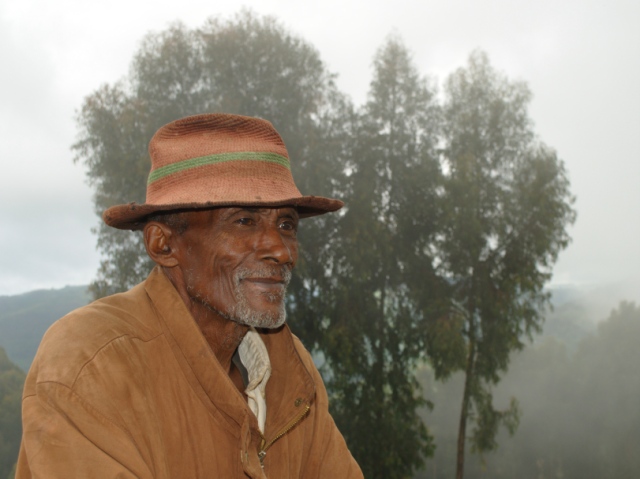
Elders can only wonder whether they will ever see their homes again.
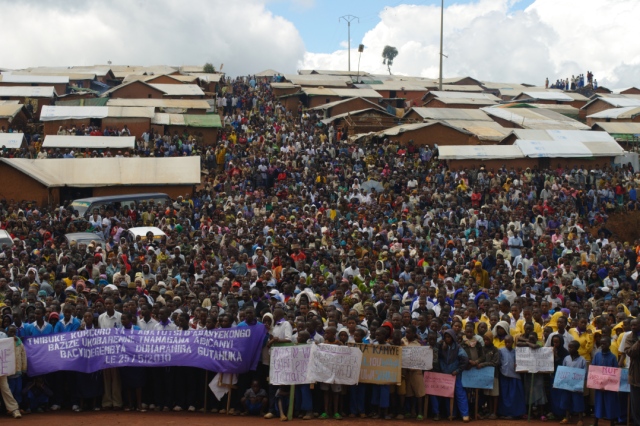
But on May 25, these worries are secondary. The entire camp stood for hours in silence, passing tissue papers to each other listening to tearful testimonies and sorrowful songs.
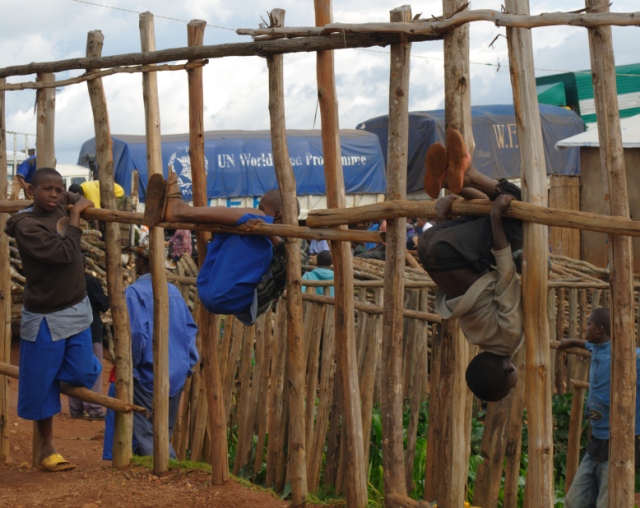
After the ceremony, the World Food Programme trailers appeared. Refugees rely upon the United Nations for food.
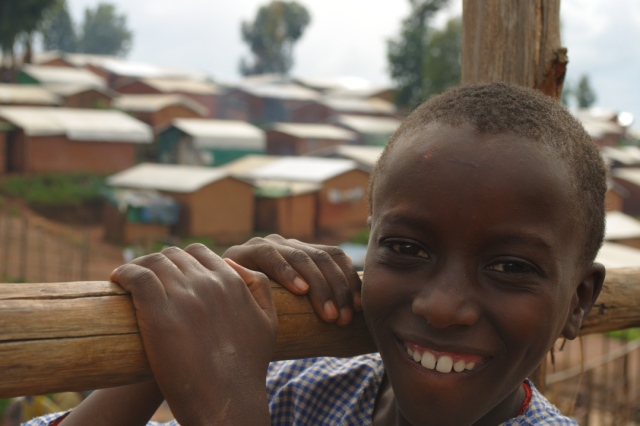
Things have been this way for about 14 years. To many residents, this is home.
Everywhere I turned I found a story nobody has published. I wrote about a topic I've adored since my first conversations with twenty-something-year-olds in East Africa three years ago. Here's my story about older high-school students struggling to attend school.